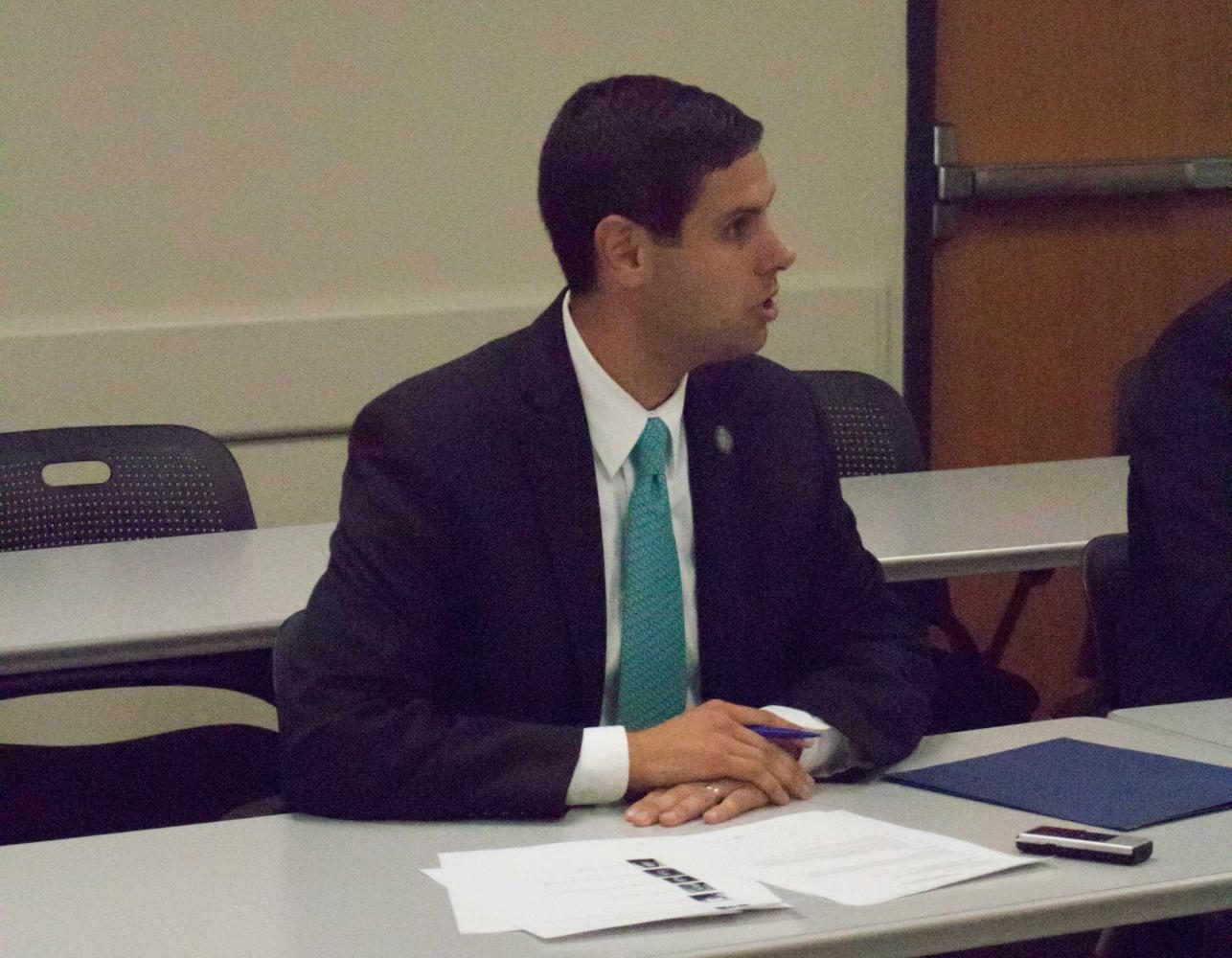Gov. candidate talks education
Democratic gubernatorial candidate Nate Boulton discussed education at UNI on Monday.
Aug 24, 2017
As politics continue to charge to the forefront of American thought, candidates are already ramping up for the 2018 races.
Democratic gubernatorial candidate Nate Boulton kicked off a series of talks about education at UNI in the State College room of the Maucker Union on Monday. United Faculty hosted the event which was comprised of 7 panelists as well as a dozen spectators.
The event highlighted issues in education like public school funding, the cost of higher education, and nationwide teacher shortages.
“We are here having a discussion on education in a state that has valued education for generations,” Boulton said. “Yet, for the last seven years, has underfunded our public school system.”
Boulton also emphasized the stress that college students are under financially, between tuition increases at public universities and the underfunding of the Board of Regents.
“We do have some very serious topics facing our state right now,” Boulton said. “Many of them relate to something very simple: prioritizing our budget.”
Boulton referred to the path to higher education as something that needs restoration in the state.
“Being able to go from a quality high school education […]rural or urban […] to go on to whatever course they chose in life,” Boulton said. “Whether that is a community college, an apprenticeship, a four-year university, or onto law school or medical school.”
The panelists also brought up several issues that they face in regards to education and education funding.
Hunter Flesch, a junior elementary and middle level education double major, mentioned the tremendous financial stress he would be under without federal programs like the TEACH grant. Several other panelists concurred with Flesch’s assessment of skyrocketing tuition and plummeting four year graduation rates.
“We’re asking students to shoulder the burden of those tax cuts… to the wealthy and corporations,” said Becky Hawbaker, a teaching instructor.
Hawbaker also mentioned a student of hers who was working 40 hours every week on top of a 21 credit course schedule just to get his degree.
Amy Petersen, an associate professor of special education, described an “ethical quandary” in advising students to stay in the education program when the debt they take on is immense and the initial pay for teachers is so low.
“I feel like a wet blanket on their passion,” Petersen said.
Petersen also noted that much of the preparation for special education majors is working with associates managing the paperwork they will have to file once in the classroom. Petersen described the paperwork as “red tape-ish” and noted that it does not necessarily improve outcomes.
“We need to inject children back into this conversation,” said United Faculty President Joe Gorton.
Regarding the position of professors on campus, Gorton made it clear that concrete steps need to be taken in order to better support professors on campus.
“The changes that were made to Chapter 20 have to be rolled back,” Gorton said. “They are absolutely devastating to the material conditions and the morale of faculty.”
Chapter 20 allows public employees to form unions and negotiate wages, insurance, and other work related issues with their employers as a union. Last year, the Iowa Legislature rolled back bargaining rights to just wages, however some universities continue to bargain for insurance and other issues of their own accord.
“[Faculty morale] matters every day in the lives of our students,” Gorton said. “Teachers’ working conditions are students’ learning conditions. We are on the verge, right now, of having to take pay cuts for a job where in many respects we are already underpaid. There’s a mythology out there that the job of a professor is very easy… well I’d say try it.”
Gorton also emphasized the need for a better prioritization of funds within the Board of Regents. According to Gorton, UNI receives less than one-fifth of the state appropriations for Iowa’s universities. Gorton also mentioned the immense external funding that the other Regent universities get.
“We don’t receive hundreds of millions of dollars in grants, we don’t receive hundreds of millions of dollars in out of state tuition or athletic contracts. We’re almost on a vow of poverty here.”
Boulton concluded by reaffirming his support for better prioritization of funds for public schools and the Board of Regents.









